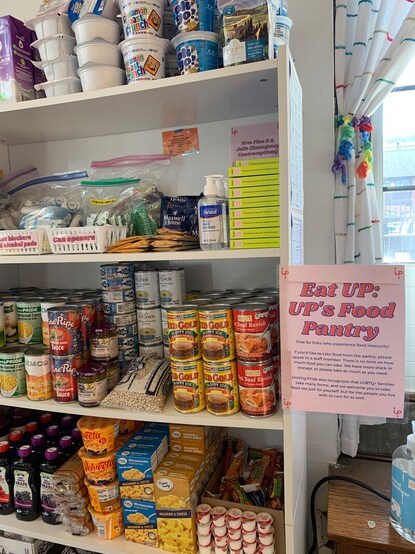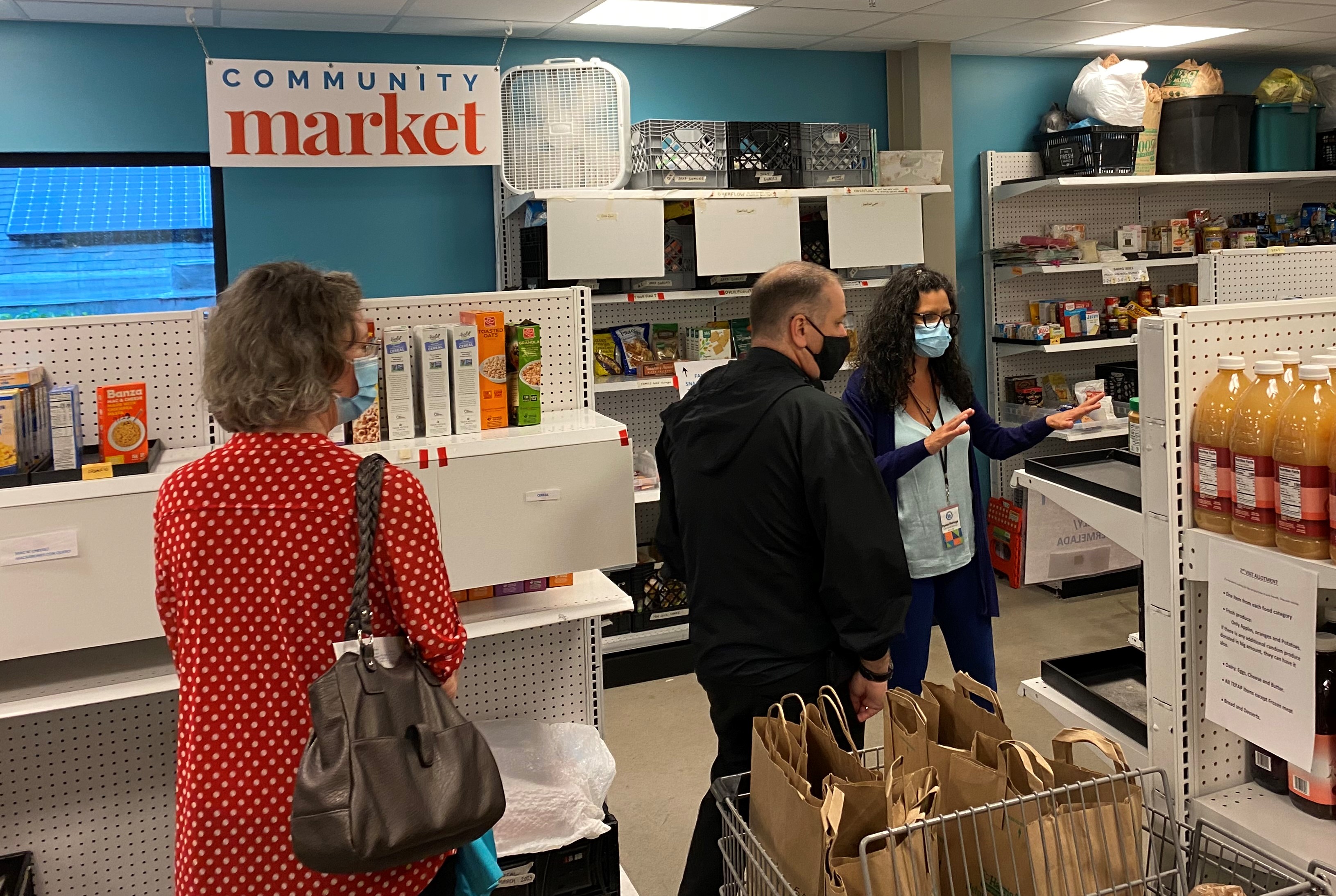Just How Food Pantries Give Necessary Resources for Families in Situation
Food cupboards serve as an important lifeline for households experiencing crisis by supplying not only food yet likewise a variety of necessary resources developed to support their long-term and prompt demands. Recognizing the complex role of food kitchens elevates important concerns concerning their influence and the broader neighborhood characteristics at play.
Understanding Food Insecurity
Food instability, a pushing issue impacting numerous households, refers to the lack of constant accessibility to adequate food for an energetic, healthy and balanced life. This condition can stem from different aspects, consisting of economic instability, unemployment, and increasing living prices, which restrict people' capacity to acquire or acquire healthy food. Subsequently, family members facing food insecurity typically depend on poor food resources, leading to poor dietary choices and negative wellness outcomes.
The ramifications of food insecurity extend beyond immediate hunger. It can negatively affect youngsters's growth and growth, adding to cognitive and behavior problems. In addition, grownups experiencing food instability may face persistent health issue, such as weight problems, diabetes, and cardio conditions, as they consider cheaper, less nourishing food alternatives.

Services Offered by Food Pantries
Resolving food instability calls for a complex technique, and food pantries play a vital duty in giving prompt relief to families in dilemma. These vital solutions offer a variety of sources targeted at alleviating appetite and supporting total wellness.
Mainly, food cupboards distribute nourishing food items, including fresh fruit and vegetables, canned items, and non-perishable products. Several kitchens prioritize healthy and balanced choices, recognizing the relevance of proper nutrition in maintaining mental and physical health and wellness. Additionally, some food kitchens use specialized programs accommodating particular populaces, such as families with young kids or seniors, making certain that the distinct nutritional demands of these groups are satisfied.
Along with food circulation, several pantries supply additional solutions, such as access to nourishment education workshops, cooking classes, and recipe-sharing efforts. These programs empower family members to make educated options and make use of pantry resources successfully. Some food kitchens work together with regional organizations to use help in locations like economic proficiency, work training, and real estate assistance, attending to the broader challenges that add to food instability.
Via these thorough solutions, food cupboards not just minimize cravings however likewise foster resilience and self-sufficiency in households dealing with challenging situations.
The Importance of Community Assistance
Area assistance is critical in combating food instability, as it promotes a network of resources and aid that expands past the instant offerings of food pantries. This collaborative structure entails regional organizations, companies, and volunteers who add time, funds, and items to boost food kitchen operations and outreach initiatives.
When neighborhoods collaborated, they produce a robust safeguard for households in crisis. Support from local businesses can bring about donations of excess food and monetary payments, which assist maintain kitchen inventories and increase services. Furthermore, collaborations with institutions and wellness organizations can facilitate education and learning around nutrition and health, equipping families to make enlightened choices.
Moreover, neighborhood participation motivates a feeling of belonging and decreases the preconception typically associated with looking for help. When individuals really feel sustained by their neighbors, they are most likely to gain access to food pantry resources without anxiety or embarrassment. This common technique not just addresses immediate needs but likewise aids build durability within households, promoting long-term stability. Eventually, the relevance of community support can not be overstated; it is the foundation that reinforces the work of food pantries and improves their influence on those facing food insecurity.
How to Access Food Pantry Resources
Accessing food pantry resources can considerably minimize the problems dealt with by households in crisis. To start, people looking for help must determine local food kitchens, which are commonly provided on neighborhood service sites or can be located via a straightforward net search (Food Pantry Lockhart). Lots of kitchens are associated with bigger organizations, such as the United Method or Feeding America, which can provide more advice


Additionally, many food cupboards use solutions past food distribution, such as article source nutritional education and referrals to various other social services. Households must ask regarding these additional sources when checking out a cupboard.
Effect on Family Well-being
The schedule of food cupboard sources plays a critical role in boosting the general well-being of family members in situation. Access to nourishing food relieves prompt appetite, which is fundamental for physical wellness. When families obtain ample food support, they experience a decrease in anxiety associated to food instability, permitting them to concentrate on other important aspects of their lives, such as work and education.

The effect of food look at here now pantries expands past the individual to the family members system. By ensuring that standard dietary requirements are met, family members can engage extra completely in their day-to-days live, assisting in much better scholastic performance for youngsters and enhanced work stability for grownups (Food Pantry Lockhart). Ultimately, food cupboards act as essential lifelines, significantly contributing to the total wellness and strength of additional info families dealing with crisis
Conclusion
Food kitchens serve as crucial lifelines for family members experiencing situations by resolving prompt food instability and promoting long-term stability. Through the provision of nutritious food, academic programs, and recommendations to extra solutions, these kitchens contribute substantially to the general health of households and people.
Food kitchens serve as a vital lifeline for families experiencing crisis by offering not only food yet additionally an array of necessary resources created to sustain their instant and long-term demands.Mostly, food cupboards disperse nutritious food items, consisting of fresh fruit and vegetables, canned goods, and non-perishable items. Some food cupboards team up with regional organizations to supply help in areas like monetary proficiency, work training, and housing support, resolving the more comprehensive obstacles that contribute to food insecurity.
Inevitably, the value of community assistance can not be overstated; it is the foundation that enhances the job of food kitchens and boosts their effect on those encountering food insecurity.
Food cupboards offer as crucial lifelines for families experiencing dilemmas by addressing instant food instability and promoting long-lasting security.